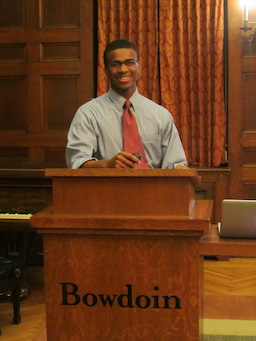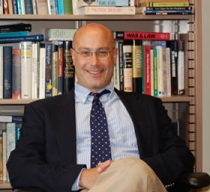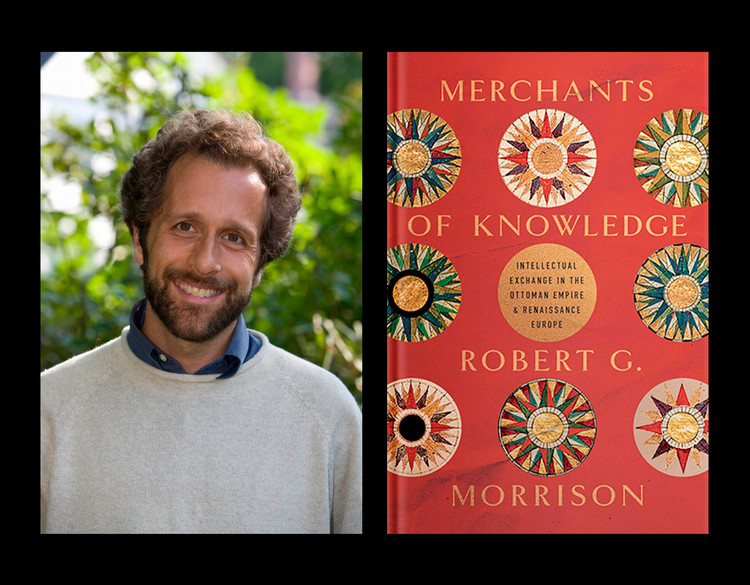150 Years Later: Commemorating Ratification of the 13th Amendment
By Elina Zhang '16
On December 6, 1865, the 13th Amendment to the U.S. Constitution was ratified, abolishing slavery and involuntary servitude. In observation of the occasion’s sesquicentennial, a student-organized discussion was held in Beam Classroom, Visual Arts Center Sunday. Elina Zhang ’16 covered the event.
Assistant Professor of Sociology and Anthropology Greg Beckett and Tallman Scholar in Government Ken Kersch joined together in a commemorative discussion on the fate of the 13th Amendment in present-day America, 150 years since it abolished slavery.
Organizer Justin Pearson ’17 began the conversation by asking the audience to consider “how far we have come” and “what the implications of our good intentions are” since the abolition of slavery. “What are the true costs of slavery?” he asked. “What is the cost of the black codes and black signs? Is it the sense of superiority that we struggle with even today?”

Professor Kersch introduced the topic of the 13th Amendment as a constitutional lawyer, considering both its peculiar ineffectualness and limitations in ending slavery, as well as its strange potential.
Kersch said he finds the language of the 13th Amendment unique among that of other amendments. “Typically amendments are a grant or limitation of power,” he said. “Yet the 13th Amendments reads, ‘Neither slavery nor involuntary servitude shall exist within the United States.’ It says this condition, this status shall not exist.”
Kersch said he found this language radical for its time. Yet upon its ratification, the amendment proved to be inadequate, requiring the additional 14th and 15th Amendments. What happened immediately after, Kersch discussed, is the enactment of black codes in the South, as well as the enactment of stringent vagrancy laws. He argued that the amendment “ended slavery as a minimal standard” and that African Americans were granted “nothing but freedom.”
Kersch walked through four Supreme Court cases to capture how the 13th Amendment has been read since it passed. He emphasized how the 13th Amendment — and the Court’s treatment of it — fed into continued racial discrimination on the part of private actors such as in the Civil Rights cases in 1883; as well as into libertarian and anti-statist rhetoric, such as in the Slaughterhouse Cases in 1873.
In conclusion, Kersch returned to the contradiction of the 13th Amendment and the contradiction of how we should celebrate this momentous instance in history. It certainly did end chattel slavery, which is celebrated; but consequences of its interpretations continue to last into present day.

Professor Beckett treated the 13th Amendment as a cultural text, considering the lived experience of slavery and positioning it within a larger history. He began by cautioning against the reading of history as “a moral success story.” The abolition of slavery in 1865 meant the U.S. was one of the last countries to abolish slavery, and slavery was already being substituted with capitalism as a better means of controlling labor.
Beckett dwelled on the amendment’s exception clause that allowed slavery to continue as a punishment for crime. “Why would that be allowed?” he asked. The question bears investigation through history, beginning with Jefferson, who believed that “hard work is intrinsic to the moral reform of people who need to be punished.”
While black bodies are no longer victims of a chattel slave system, they now can be “legally treated as slaves,” Beckett said. He cited Orlando Patterson’s term “social death” to discuss the felt experience of enslavement, one that “strips individuals from owning property” and all social and political rights. To be able to render individuals as socially dead, Beckett argues, is the work of the state of exception.
This exception treats “bare lives” by enslaving them without consequence. “The state of exception shows us that laws can do things that aren’t legally sanctioned. It is like the state of emergency, when the government doesn’t have to go through legislation to enact power,” said Beckett.
By understanding the state of exception, Beckett briefly introduced how the prison system allows for power of the exception to be on individuals. But he argued that it is “the emergence of racism” that emerged out of the 13th amendment. “Slavery no longer exists but the amendment allows the ontological status of social death, or the state of ‘rightlessness,'” he said.



